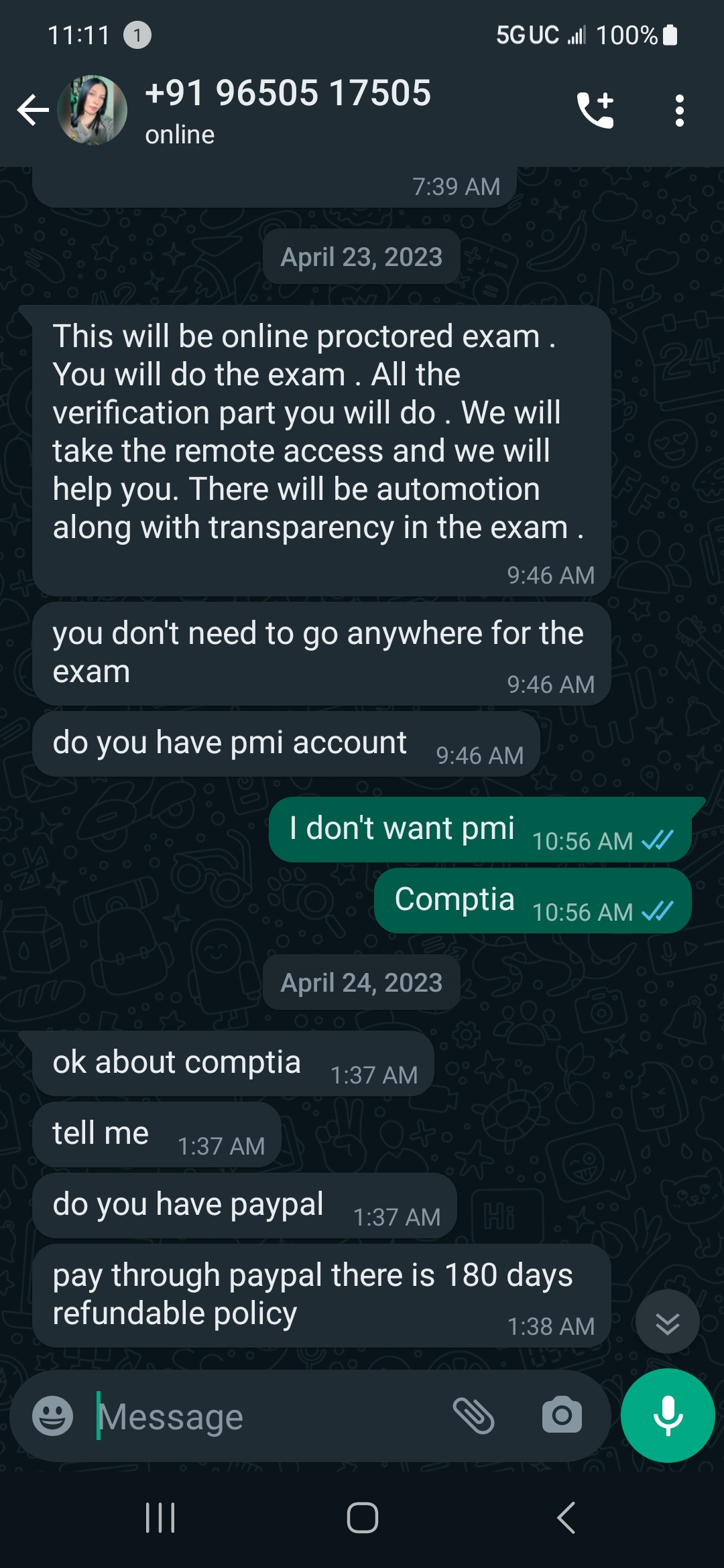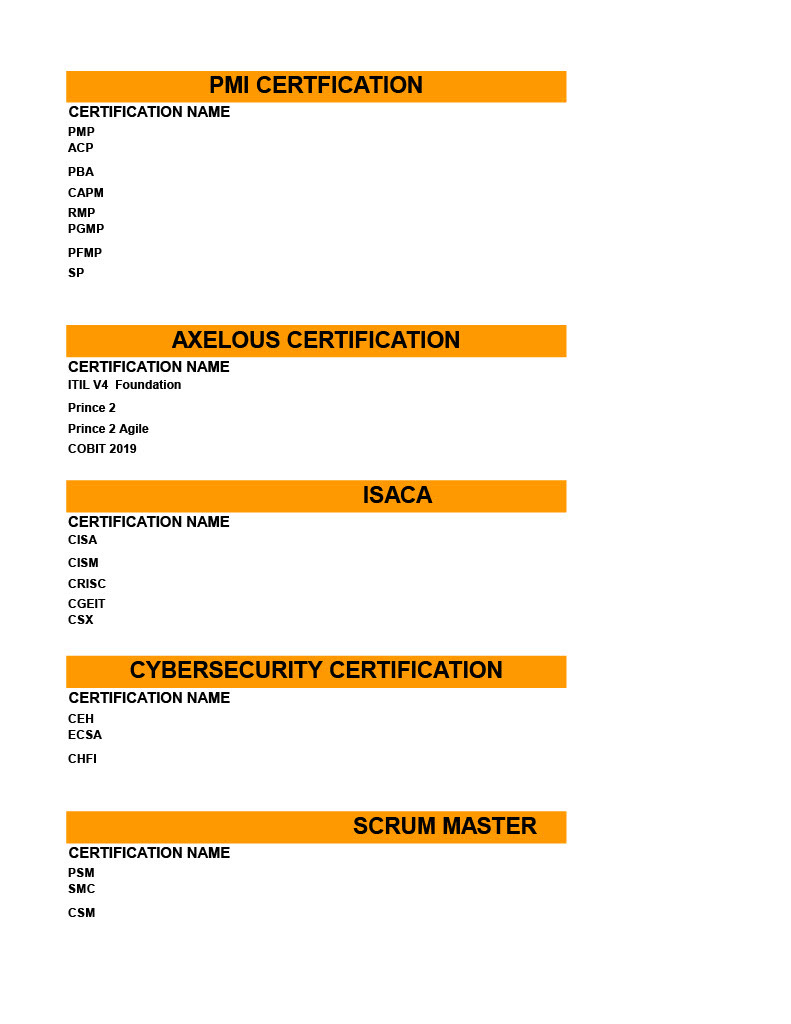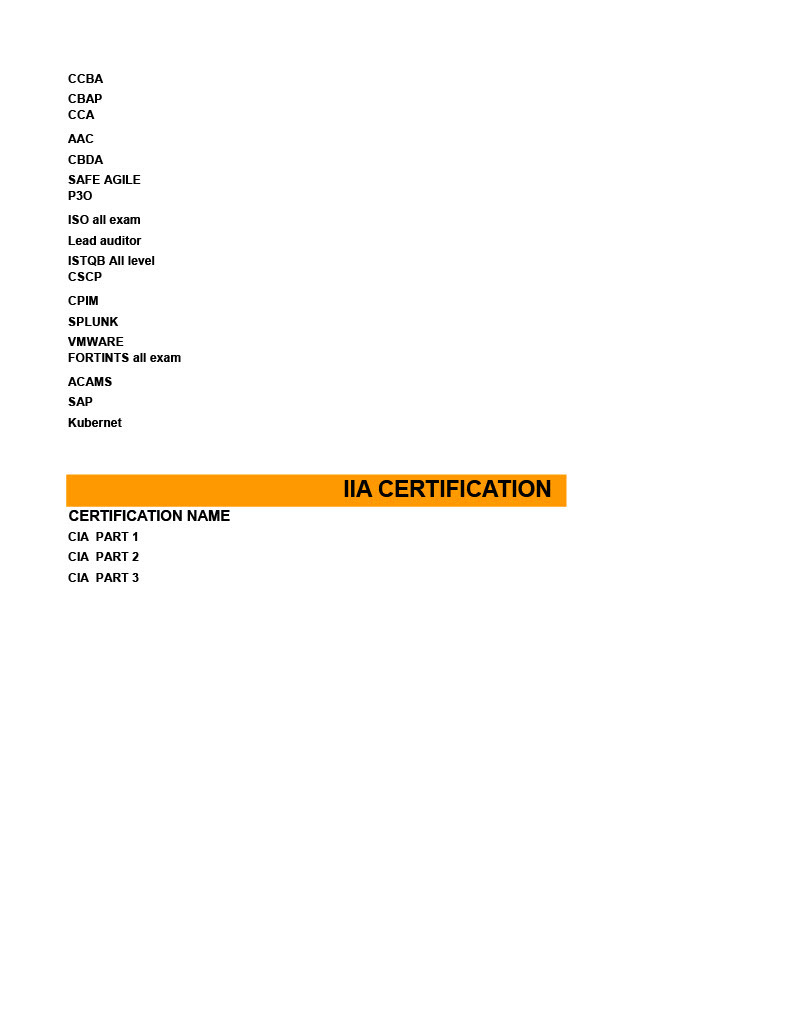On Sale: Professional Credential Cheating, Just $2,500. Passing Guaranteed.
Plus, cheating in Pakistan on the rise. Plus, in WIRED, a teacher says not too much of anything at all about cheating.
Issue 223
To join the 3,358 smart people who subscribe to “The Cheat Sheet,” enter your e-mail address below. New Issues every Tuesday and Thursday. It’s free:
If you enjoy “The Cheat Sheet,” please consider joining the 14 amazing people who are chipping in a few bucks a month via Patreon. Or joining the 14 outstanding citizens who are now paid subscribers. Thank you!
A Menu of Professional Credentials for Sale
So, I have another story.
In April, a woman contacted me on LinkedIn. Her profile says she’s a network engineer in Delhi, India. Her message said:
Are you looking for any kind of certification #like as #PMI-PMP,RMP,PBA,ACP,CAPM,ITILV4,CCNA,CCNA,CISM,CISA,COMPTIA A+,CYSA, With#100% passing guarantee
And if you know me, even though I have no idea what most of those letters mean, I am very interested. So, I replied and soon switched over to WhatsApp.
Over the course of several weeks, my new contact said I could get any credential I wanted from her menu of about 60 credentials, for $4,000. It was simple, she told me, I just had to sign up for the test, let them know when it was, and she would have someone take the test for me. Guaranteed.
I wanted to ask questions. She said I would take these tests and give answers. Then someone would access my computer remotely and change my answers so I would pass. She wrote:
This will be online proctored exam you will do the exam. All the verification part you will do. We will take the remote access and we will help you. There will be automation along with transparency in the exam.
I said I knew nothing about these subjects. She said it did not matter. I said it sounded illegal. She said it was not.
I said I did not trust people who offered to cheat for money - what guarantees did I have that they would keep up their end? She sent me screenshots of exams they’d taken for other people. Someone in Qatar who paid to pass exams with CompTIA. She shared the receipts.
I passed that along to CompTIA - not sure what they did with it.
I asked her how often they cheated these exams. She said:
On daily basis we do exam
I asked her what exam credentials she offered. She sent me an actual menu. Here it is:
I said I wanted a CISCO credential. I picked those because CISCO is a name I know and because I’d been impressed with their commitment to integrity in higher education (see Issue 42).
Still, I told her I was not going to pay in advance. She said I could pay on exam day. I said $4,000 was too much. She agreed to $2,500. I maintained that I was not going to pay her $2,500 plus $400 for the exam fee and have her disappear. As you can see above, she said I could use PayPal, which will refund my money for up to 180 days. Good to know that PayPal is essentially insuring fraud purchases.
Anyway, after I reminded her that all she had to do was tell CISCO that I cheated, she said I could pay the fee after the exam. At that point, all I had to do was sign up and pay CISCO the $400.
I didn’t.
I think I should have.
The only reason I did not was that I felt that $400 was too much to prove a point. And I was not sure CISCO would refund my money. I can see many reasons they would not.
I say again that I don’t know many of the names and initials on that menu of cheatable credentials. But I do know they’re all for sale to anyone with $2,500 and an Internet connection. And because of that, I know that’s exactly what they’re worth. In this case, these certifications cost money, they don’t confer competence.
And that’s a problem.
It’s a double problem because, on balance, professional credential providers such as those on this list, invest heavily in protecting their brands by rooting out and stopping fraud. Compared to what most schools do not do, it’s night and day. Which tells me that if it’s this easy to just pay to pass these professional credential exams, I can’t even imagine how easy it is to get an “A” in Freshmen Lit or Intro to Philosophy - to buy an entire college degree.
Actually, I know exactly how easy that is - it’s why Chegg exists.
My point is that we have a problem. We’re watching an era of credential fraud on a massive scale. Everywhere and every day. And it’s not as though we didn’t see it coming (see Issue 165). But while we’re professing our collective deep commitments to integrity and fairness, we’re witnessing the hallowing out of the very meaning of education, skill attainment and credentialing. In real time.
But good news, I guess. It’s now easier than ever to get a real certification in just about anything you want if you have some cash. Hiring managers - good luck.
Cheating in Pakistan: “On the Rise”
Pakistan Today has a brief op-ed this week on cheating in the Balochistan region.
It does not cover much new ground so I won’t spend too much space on it. Most notably, it says:
many research studies have confirmed that academic cheating has been on the rise at universities, colleges, and schools in Balochistan in previous years. Cheating in examinations across Balochistan is an issue of growing concern. Students from school to college and even at the university level have become habitual in cheating to avoid failing courses, especially in board exams. Cheating in examinations has become a regular practice.
Seems right.
And also:
One may argue that the culture of academic cheating in Balochistan has reduced the efficiency of human resources and has resulted in graduates with high qualifications but less potential in the province. Therefore, it is very important to fight against the culture of academic cheating, and the educational administration in this regard should devote increased resources to deal with this issue and develop a mechanism to manage and curtail the level of academic cheating.
I would indeed argue that cheating does in fact dilute the quality of graduates and, by extension, the value of their degrees and qualifications.
I also note that the author writes:
Although some institutions and the education department of Balochistan look concerned about cheating, no such steps have been taken to control it and the issue has not been managed effectively in the province.
I’m shocked. Looking concerned is just about all any school ever does.
Anyway, the piece has some very basic advice such as rotate test questions and supervise exams. And it blames teachers for bad teaching as a cheating catalyst, which I do not like at all.
Still, talking about cheating is a good step. Calling on governments to do something about it is good too. And more than we see in most places.
Teacher Opines on AI in WIRED
Christina Wyman, who WIRED Magazine identifies as, “a writer and teacher living in Michigan,” took to the technology mag’s pages in June to share her views about AI in the classroom.
Most of the way down in her piece, Wyman gets to:
The Elephant in the Room: AI and Cheating
After which, she immediately disqualifies herself - at least in my view - when she writes:
cheating has never been much of an issue in my courses (I’ve dealt with two occurrences in almost two decades,)
Sorry, that’s simply not credible. It’s willful and delusional. I know that’s harsh, but it is.
She then goes on to say that the “age old” plagiarism detection systems can now detect ChatGPT. And of course she singles out GPTZero, which is without debate among the worst such tools on the market and never was an “age old” anything. Moreover, the founder of GPTZero now says he’s getting out of the detection business and has started goofing around with cheating companies (see Issue 217).
She seems surprised that experts suggest not using AI-detectors alone to determine authenticity. Then she stops talking about cheating entirely, which is odd. Especially when the title of her piece is:
How to Tackle AI—and Cheating—in the Classroom
She says later:
I am not as concerned with AI’s impact on cheating as I am with its impact on relationships.
That much was obvious. She thinks only teachers, and not AI chatbots, can inspire learning and discuss issues with parents. Again, obvious.
What’s less obvious is why this piece was written and why WIRED decided it needed an audience.






